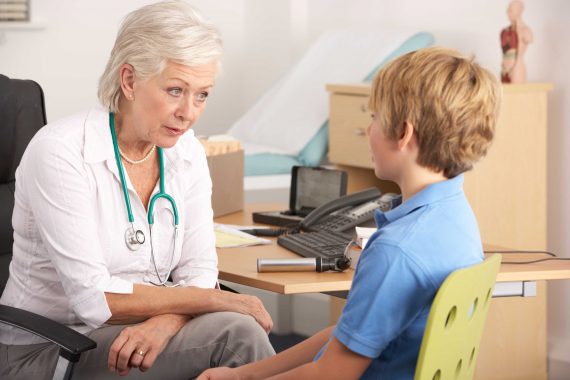Previous exposure to antibiotics likelier to result in response failure for children

Children who have had two or more courses of antibiotics are more likely to have subsequent infections that do not respond to antibiotics, new research has shown.
The findings, published in the British Journal of General Practice, showed that children under the age of five who received two or more antibiotic courses in the previous year for acute respiratory tract infections (RTI) had a greater likelihood of response failure for subsequent acute RTIs than children who received none.
The observational study looked at children aged one to five who were prescribed antibiotics for an upper and lower RTI or otitis media between 2009 and 2016.
Out of 114,329 children who were prescribed a course of antibiotics, those who received two or more courses in the preceding year were almost twice as likely to fail to respond to treatment than those who were not.
For children with a lower respiratory tract tract infection who had received two or more courses of antibiotics in the previous year, 60% more likely to fail to respond to treatment than those who hadn’t.
It was acknowledged that the response failures were not guaranteed to be a direct result of the antibiotic treatment failure, and further research is required to improve understanding of the mechanisms’ underlying response failures.
The research, based on records from a UK primary care database, said the ‘clinically relevant implications’ of childhood antibiotic exposure include antibiotic resistance, disruption to protective gut and lung microbiomes and clinical workload manifesting as treatment ‘failure’.
The authors of the paper said: ‘Incorporating these exposure data into clinical decision-support systems will prompt primary care clinicians to implement strategies to support nonantibiotic strategies, such as informing parents about the anticipated recovery period of common RTIs in children.
‘This is especially true where the child does not have clinical evidence of an infection that obviously requires treatment with antibiotics. Indirectly, this can help curb expectations for antibiotics, and facilitate better shared decision making during consultations based on tangible outcomes that parents, or carers, and clinicians can relate to.’
In response to the study, the RCGP urged parents to understand that antibiotics aren’t the answer to many common childhood illnesses.
RCGP chair Professor Helen Stokes-Lampard said: ‘GPs are acutely aware of the potential dangers of prescribing of antibiotics when they are not absolutely necessary – and how this can contribute to growing resistance to these important drugs, which is a global concern.
‘This research drives home how important it is for patients – and particularly the parents of young children – to understand that antibiotics do not work for every infection and should not be prescribed for the most common childhood conditions such as colds, coughs, ear infections or sort throats which are usually caused by viruses.’
Antimicrobial resistance (AMR) remains a growing concern across healthcare. Last autumn, the Government committed £32 million to accelerate the UK’s work on the topic, with Professor Dame Sally Davies, who previously deemed it as big a threat as terrorism, recently announced as the UK’s first special envoy on AMR.
Visit Pulse Reference for details on 140 symptoms, including easily searchable symptoms and categories, offering you a free platform to check symptoms and receive potential diagnoses during consultations.









